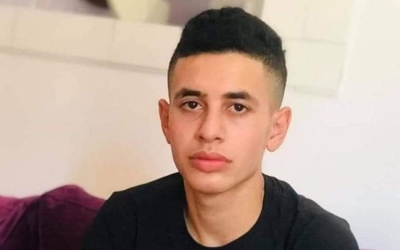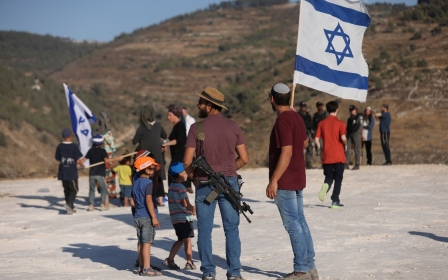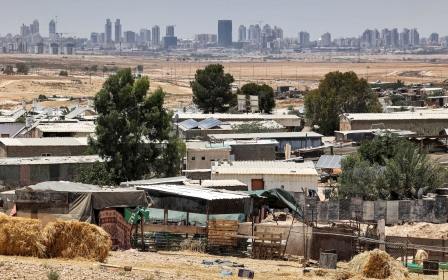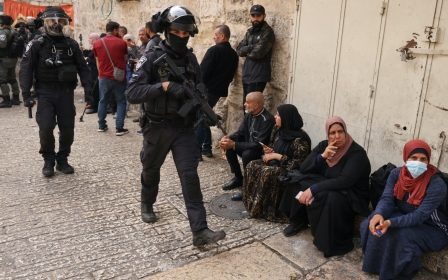Israel: Seven settlers convicted over wedding where they mocked dead Palestinian toddler
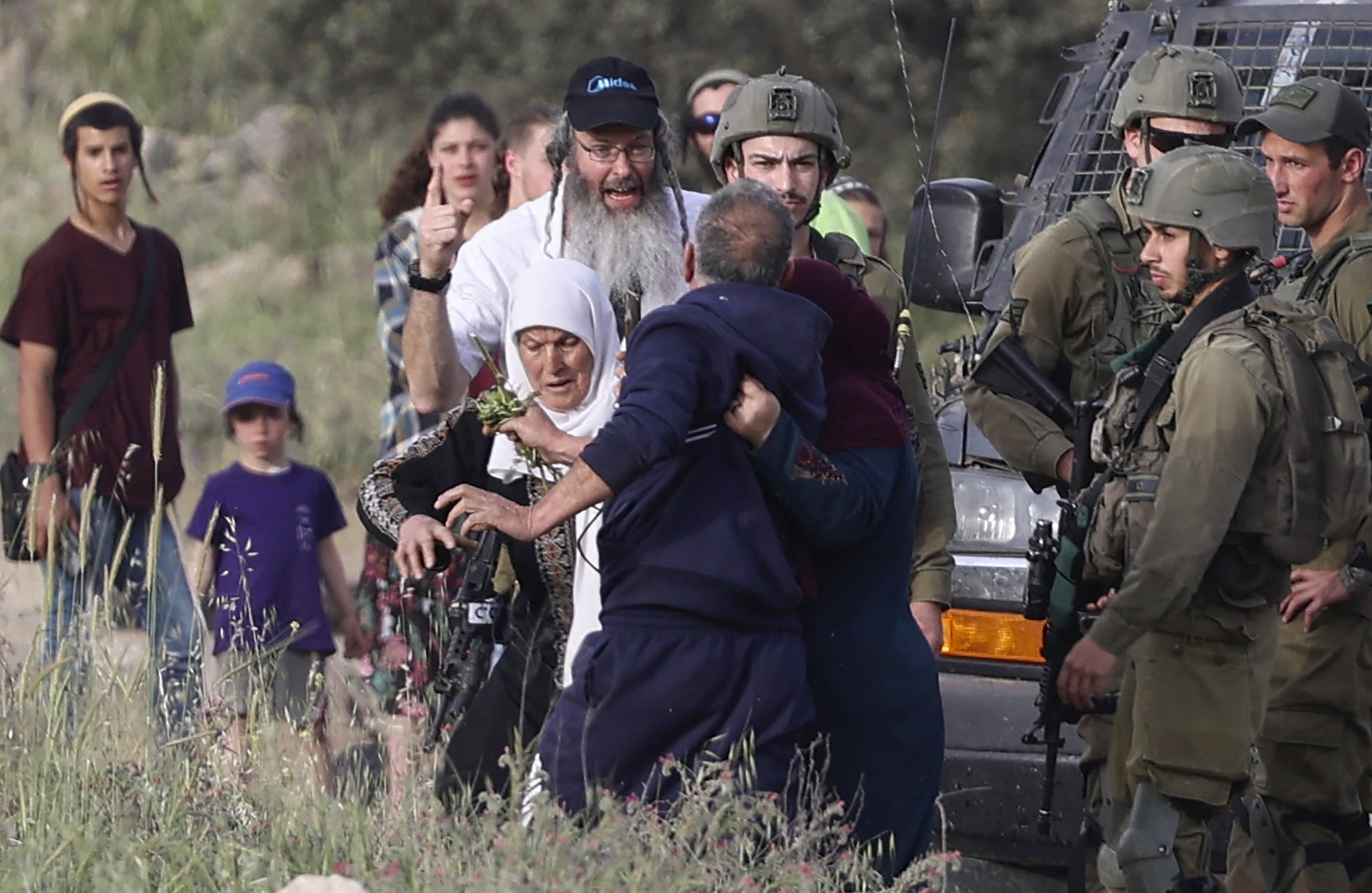
Following a 2015 wedding where Israeli settlers waved around and stabbed photos of Ali Dawabshe, a murdered Palestinian toddler, a top Israeli court has convicted seven people for incitement to violence and terrorism.
One of the accused was also found guilty on Wednesday of supporting a terrorist organisation, incitement to racism and possession of a weapon, according to court documents. One wedding guest was acquitted of incitement to violence and terror.
The incitement to racism and violence charges carry a maximum five-year prison sentence, but the exact sentencing will be determined in a hearing in October.
The events at the wedding were highly controversial among Palestinians and Israelis alike. Ali Dawabshe was 18 months old in 2015 when Israeli settlers firebombed his house in the occupied West Bank. Ali and his parents died as a result of the attack. Ali's five-year-old brother was the sole survivor.
After the arson, Amiram Ben-Uliel was convicted for their murders and received three life sentences. He also received 10 years for arson and 17 years for the attempted murder of Ali's surviving brother.
Yakir Eshbal's wedding happened five months after the murders, with videos capturing him and other guests mocking photos of Dawabshe, shocking both Israelis and Palestinians.
In the video there are dozens of young Israelis jumping and singing about revenge, while holding up guns and knives. The weapons were issued by the Israeli army and passed around, including to minors.
Songs at the wedding featured offensive lyrics such as “the mosque will burn” and “the mosque will explode”. One person is seen in the video stabbing a photo of Dawabshe with a knife.
“You miserable people, you’ve forgotten what it is to be Jews. You disgrace your skullcap, your prayer shawl and the name of God," said Zionist Union leader Isaac Herzog at the time. "Whoever dances at a wedding and celebrates the murder of a sleeping baby is not Jewish and not Israeli."
One of the accused said on Wednesday that “my deeds do not represent who I am today, and I regret them” but that he doesn’t think his actions constitute a felony and he will appeal the conviction.
Middle East Eye delivers independent and unrivalled coverage and analysis of the Middle East, North Africa and beyond. To learn more about republishing this content and the associated fees, please fill out this form. More about MEE can be found here.


